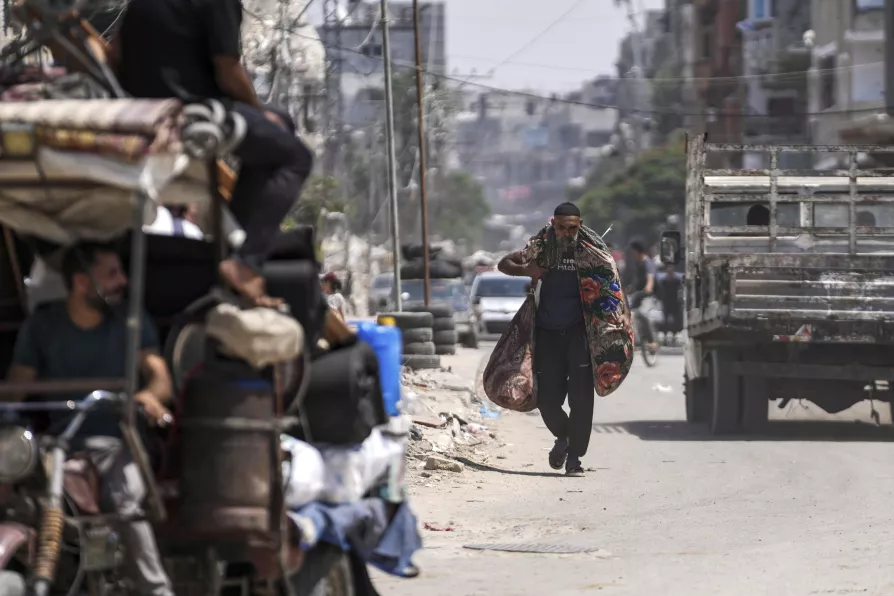Thousands expected to attend next protest against Palestine Action ban, organiser say
Amnesty calls for war crimes probe

 A Palestinian carries his belongings as he evacuates Maghazi refugee camp in the central Gaza Strip, August 17, 2024
A Palestinian carries his belongings as he evacuates Maghazi refugee camp in the central Gaza Strip, August 17, 2024
ISRAELI attacks on Palestinians at two displaced persons camps in Rafah should be investigated as war crimes, according to a damning new report.
A new investigation by Amnesty International UK slams Israeli forces for failing to take precautions to avoid or minimise harm to civilians sheltering at the Kuwaiti Peace Camp and al-Mawasi in May.
This comes as hopes of a Gaza ceasefire hang in balance after mediation talks in Egypt.
Similar stories














